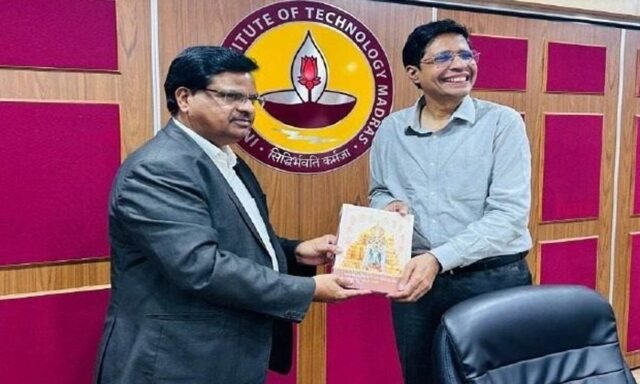Hyderabad: VRC PhaniharanThe Telangana Council of Higher Education (TGCHE) seems to be bringing a qualitative change, adopting a more practical approach in line with the state government’s aspiration to turn Hyderabad into a technology hub. For a long time, it has been going abroad for collaborations and inking MoUs that have hardly resulted in any tangible results. Against this backdrop, the TGCHE has embarked upon a change with a ‘Look-in-India’ model. Speaking to Hans India, TGCHE Chairman Prof V Balakista Reddy said, “We have not closed our eyes for tie-ups from abroad,” but are equally exploring the existing resources for strategic tie-ups with top-notch institutions within the country.
The main exercise is three-fold: first, to enter strategic MoUs for leveraging expertise in setting up research parks and innovation hubs to foster technological education hands-on practical experience for students of higher education in Telangana.
Secondly, capacity building of faculty and research. Startup incubation, infrastructure development, and industry-university tie-ups. Third, the Department of Science and Technology (DST), University Grants Commission (UGC) and others have been releasing huge funds, towards capacity building, research and development, innovation and entrepreneurship for the startup ecosystem.
A 360-degree model for optimum utilisation of existing and accessible collaborations would be more fruitful and practical in implementation. This not only helps in roping in higher educational institutions like IIT-M for capacity building and tapping the available funding sources available.
This helps in accelerating a more economical and sustainable model of collaboration with higher education institutions within the country in line with the State government’s vision to create employment and entrepreneurship opportunities. The TGCHE will also look forward to strategic collaborations to tap into fields of education, research and development growth sectors like space science and technologies that benefit Telangana in building human capital with potential economic dividends like the creation of new enterprises and employment opportunities with expertise available from the educational institutions of the state, he added.








